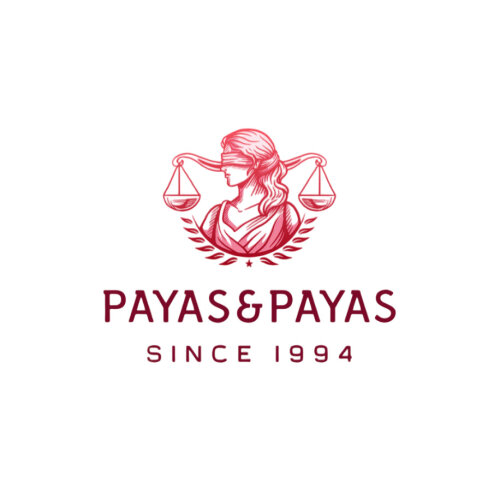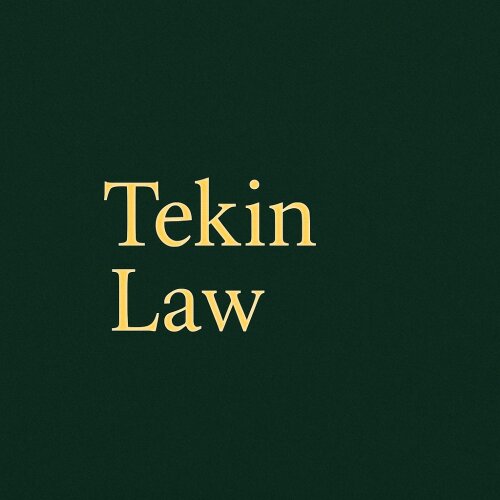Best Employer Lawyers in Turkey
Share your needs with us, get contacted by law firms.
Free. Takes 2 min.
Or refine your search by selecting a city:
List of the best lawyers in Turkey
Legal guides written by Tekin Law Firm:
- Arbitration in Turkey
Turkey Employer Legal Articles
Browse our 1 legal article about Employer in Turkey written by expert lawyers.
- Is a Company Liable for Employee Crimes in Turkey?
- Table of ContentsIntroduction: The Dual-Risk Reality for Companies in TürkiyeThe Guiding Principle: Personal Criminality and Corporate ConsequencesParallel Sanctions: Penalties for Individuals and the CompanyPenalties for Individuals (Executives, Directors, and Employees)"Security Measures" Against the CompanyKey Risk Areas Where Corporate Liability Often ArisesBribery and CorruptionFraud and Abuse of TrustAnti-Money Laundering (AML)The Strategic... Read more →
About Employer Law in Turkey
Employer law in Turkey governs the rights and obligations of employers and employees within the Turkish labor market. This framework is directed by the Labor Law No. 4857, which addresses various aspects of employment such as employment contracts, working hours, termination protocols, wages, and occupational health and safety. The legislation aims to balance the interests of both employers and employees while promoting fair labor practices and protecting workers' rights.
Why You May Need a Lawyer
There are several situations where individuals or businesses might require legal assistance in the domain of employer law in Turkey:
- Employment Contracts: Drafting or reviewing employment contracts to ensure they comply with Turkish labor laws.
- Termination of Employment: Navigating the complexities of employee termination, such as lay-offs, disciplinary actions, or redundancies, to minimize legal disputes.
- Workplace Disputes: Resolving conflicts between employers and employees or handling cases of discrimination or harassment.
- Compliance: Ensuring compliance with labor regulations, such as occupational health and safety standards.
- Social Security Issues: Addressing matters related to social security contributions and benefits.
- Collective Bargaining Agreements: Engaging with unions and negotiating collective bargaining agreements.
Local Laws Overview
The Turkish Labor Law provides comprehensive guidelines on various employment-related areas. Key aspects include:
- Employment Contracts: Contracts can be for a definite or indefinite term, with fixed-term contracts being limited by specific legal conditions.
- Working Hours: The standard working hours are 45 hours per week, typically distributed over six days, with overtime being permissible under certain circumstances.
- Termination: Employers need valid reasons for terminating employment contracts, and employees dismissed without just cause may claim compensation.
- Wages: A national minimum wage is set annually, and it is illegal to pay below this rate.
- Occupational Health and Safety: Employers must adhere to strict guidelines to protect their employees' health and safety.
- Leaves: Employees are entitled to paid annual leave, public holidays, and other types of leave, such as maternity and paternity leave.
Frequently Asked Questions
What is the standard working week in Turkey?
The standard working week in Turkey is 45 hours, typically spread over six days.
Can an employer terminate an employee without notice?
No, an employer must adhere to legal notice periods and provide valid reasons for termination. Unlawful termination can lead to compensation claims by the employee.
Are severance payments mandatory in Turkey?
Yes, employees who have completed at least one year of service are entitled to severance pay if their employment is terminated for reasons other than misconduct.
Is a written employment contract required?
While oral contracts are valid in Turkey, written contracts are strongly recommended for clarity and to avoid disputes.
What are the employer’s obligations regarding occupational health and safety?
Employers in Turkey must ensure a safe work environment, comply with health and safety regulations, and provide necessary training to employees.
How is overtime regulated?
Overtime work must not exceed 270 hours per year and should be paid at 1.5 times the normal hourly rate unless a different rate is stipulated by a collective bargaining agreement.
Are there laws protecting against workplace discrimination?
Yes, Turkish labor laws prohibit discrimination on the basis of gender, race, religion, and other personal attributes.
What are the main types of leave available to employees?
Employees are entitled to annual leave, sick leave, maternity leave, paternity leave, and other statutory leaves as defined by the labor law.
When is a fixed-term contract permissible?
Fixed-term contracts are permissible when justified by the nature of the work or a requirement of the job, not for indefinite needs.
Are employers required to provide meal and travel allowances?
While not mandated by law, these allowances can be included in employment contracts or collective bargaining agreements.
Additional Resources
Individuals seeking further information or assistance can reach out to the following resources:
- The Turkish Ministry of Family, Labor and Social Services: Provides guidelines and legal documents related to labor laws.
- Union of Chambers and Commodity Exchanges of Turkey (TOBB): Offers resources for employers on various business laws and regulations.
- Legal Aid Centers: Provide support for individuals who might not afford private legal services.
- Local Bar Associations: Can provide lists of qualified attorneys specializing in labor law.
Next Steps
If you need legal assistance concerning employer law in Turkey, consider the following steps:
- Identify Your Needs: Determine the specific legal issues you are facing to guide your consultation with a lawyer.
- Consult a Legal Expert: Contact a qualified attorney specializing in Turkish labor law for personalized advice.
- Gather Documentation: Prepare any relevant employment contracts, termination notices, or correspondence that will support your case.
- Stay Informed: Keep abreast of any updates or changes in labor legislation that could affect your case.
Lawzana helps you find the best lawyers and law firms in Turkey through a curated and pre-screened list of qualified legal professionals. Our platform offers rankings and detailed profiles of attorneys and law firms, allowing you to compare based on practice areas, including Employer, experience, and client feedback.
Each profile includes a description of the firm's areas of practice, client reviews, team members and partners, year of establishment, spoken languages, office locations, contact information, social media presence, and any published articles or resources. Most firms on our platform speak English and are experienced in both local and international legal matters.
Get a quote from top-rated law firms in Turkey — quickly, securely, and without unnecessary hassle.
Disclaimer:
The information provided on this page is for general informational purposes only and does not constitute legal advice. While we strive to ensure the accuracy and relevance of the content, legal information may change over time, and interpretations of the law can vary. You should always consult with a qualified legal professional for advice specific to your situation.
We disclaim all liability for actions taken or not taken based on the content of this page. If you believe any information is incorrect or outdated, please contact us, and we will review and update it where appropriate.
Browse employer law firms by city in Turkey
Refine your search by selecting a city.

















